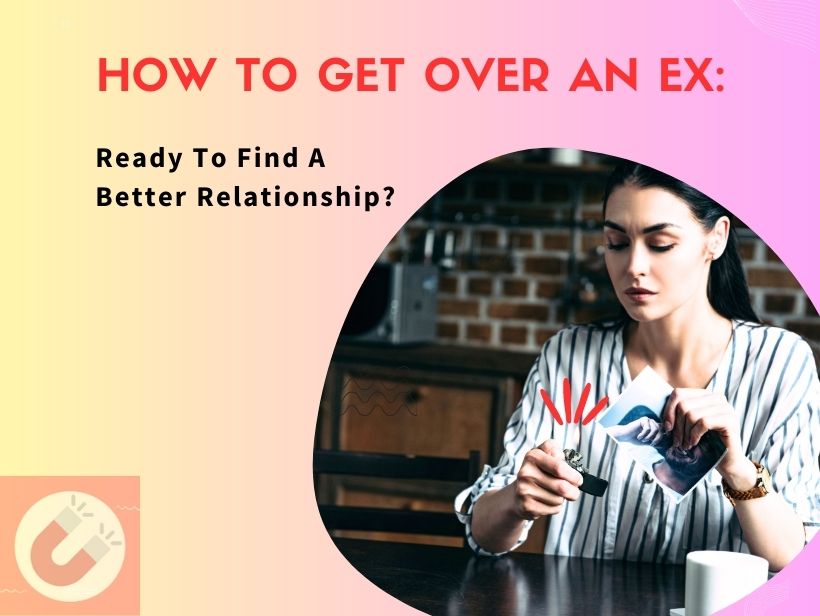“Whenever I’ve rushed into love, it’s like I’m more in love with the idea of being in love than with the person themselves. Ideas and feelings can come and go, but then I’m left confronting the reality. I don’t truly know or feel very compatible with the person I’ve entangled my life with.
Confronting this so directly was a sobering reminder that real connection requires self awareness and presence, but also time. I’ve begun really taking the time to develop genuine understanding, not just feel the rush of initial emotions.”
– From a Social Skills Masterclass Success Story, who wishes to remain Anonymous
What does it mean to rush into a relationship?
Rushing into a relationship refers to the act of moving too quickly or too early with a new partner, without giving yourself ample time to understand your own feelings or the other person’s intentions. Psychological motivations behind rushing into a romantic relationship can include fear of being alone, societal pressures, a lack of outcome independence, or a desire for immediate emotional validation.
Why is it so problematic to rush into love?
Rushing into love can lead to disjointedness in the natural progression of an otherwise healthy relationship. As a result, that may cause you to miss out on opportunities to explore each other’s needs and grow together, which can lead to major misunderstandings, unresolvable conflicts, and otherwise sabotage a promising relationship.
On the other hand, being rushed into a relationship, also known as love bombing, can often be used as a manipulation tactic by potential abusers, as it involves overlooking potential deal breakers and disregarding red flags or important boundaries.
- Disregarding Red Flags: When you rush into a relationship, you may overlook toxic traits in your partner, such as lack of communication, disrespect, or controlling behaviors that could potentially harm the relationship in the long run.
- Missing Out on Growth: Rushing a relationship can prevent you from fully understanding each other’s needs and growing together. This can sabotage and otherwise healthy long term relationship, and greatly hinder its potential.
- Overlooking Deal Breakers: In the hurry to be in a relationship, you might ignore aspects that you would normally consider deal breakers like differing life goals, incompatible lifestyles, or unacceptable habits.
What is love bombing, and why is it recognized as a red flag in relationships?
Love bombing is a form of emotional manipulation where someone showers another person with attention and affection, often at the beginning of a relationship, in order to manipulate them. This behavior can include grand gestures, excessive compliments, over-the-top gifts, intense declarations of love, and pressure to commit. It is considered a red flag in relationships because it can lead to gaslighting and abuse. The psychological effects of love bombing on the recipient can include confusion, loss of self-esteem, or the difficulty in distinguishing love bombing from genuine affection.
How can I tell if I’m rushing into a relationship too quickly?
There are several signs that you might be rushing your relationship. These include spending all of your free time with the person you’re dating, having a relationship that is mostly physical, not being able to stop texting them, constantly posting about your relationship, and feeling afraid of losing them after just a few dates. Emotional aspects such as an unrealistic romanticization of a partner, ignoring incompatibility issues, or experiencing anxiety and instability in the relationship can also be signs that things may be moving too fast.
1. Excessive Time Together
Dedicating every spare moment to your partner, to the exclusion of personal time or other relationships, may suggest you’re accelerating the relationship’s pace beyond a healthy speed. This intense focus can prevent you from maintaining a balanced life. Allocating nearly all your leisure time to be with your partner, often sidelining personal interests, hobbies, social activities and social connections, indicates a potentially unbalanced relationship dynamic. This can lead to an unsustainable intensity and hinder individual growth.
2. Physical Intensity
When a relationship’s foundation is heavily reliant on physical attraction and interaction, with minimal development of emotional bonds or shared experiences, it may signal a premature escalation. Such dynamics often overlook the cultivation of a deeper, lasting connection. A relationship that skews towards physical intimacy as its primary mode of connection, with scant attention to emotional intimacy or shared intellectual pursuits, may suggest an overemphasis on immediate gratification rather than building a comprehensive bond.
3. Constant Communication
A 24/7 need to stay in touch, relentless texting, calling, or social media interaction, might be a sign of rushing a new relationship. This compulsion can stem from anxiety over the relationship’s security, overshadowing the development of a stable, mutual understanding. The urge for continuous conversation or contact, to the point where it feels compulsive or anxiety-driven, signals an over reliance on the relationship for emotional fulfillment. This behavior may mask underlying issues of self-esteem or fear of solitude.
4. Over-posting on Social Media
Frequently sharing numerous details and updates about your romantic endeavors online can signal an underlying desire for external approval or a haste to make the relationship seem more significant or perfect to outsiders. This behavior not only risks privacy but also places undue emphasis on the perception of the relationship rather than its genuine progression and depth. It suggests an over-reliance on social validation to affirm the relationship’s worth, potentially masking insecurities or doubts within the personal dynamic.
5. Fear of Loss
Experiencing an overwhelming dread of separation or the end of the relationship, particularly at its nascent stages, may reveal an accelerated emotional investment. This heightened fear can lead to behaviors aimed at excessively securing the relationship, possibly stemming from past experiences of loss or a lack of security within oneself. Such intense fear not only pressures the relationship but can also inhibit the natural growth of mutual trust and independence.
6. Ignoring Incompatibility
Disregarding obvious signs of mismatched values, interests, or life goals due to an infatuation with the concept of the relationship points to an imprudent haste. This oversight can be a deliberate choice to focus on immediate emotional satisfaction rather than addressing fundamental differences that could pose significant challenges in the long term. By ignoring these signs, individuals risk investing in a relationship that may not withstand the realities of everyday life, leading to potential conflicts and dissatisfaction.
7. Unrealistic Romanticization
Elevating your partner or the relationship to an unrealistic pedestal often leads to disillusionment. This idealization glosses over the partner’s flaws and the relationship’s challenges, setting unrealistic expectations that when unmet, can cause disappointment and strain. Such romanticization can stem from a desire to live out a fantasy or fulfill unmet emotional needs, ignoring the realistic development of a partnership based on mutual understanding, growth, and acceptance of imperfections.
8. Anxiety and Instability
The presence of continuous anxiety regarding the relationship’s future or experiencing frequent emotional turmoil can be indicative of rushing into emotional commitment without a stable foundation. This state of unrest often arises from insecurities, a lack of clear communication, or unresolved personal issues, leading to a cycle of dependence and anxiety over the relationship’s security. It highlights the necessity of building relationships on solid ground, with open communication, mutual respect, and a gradual, shared journey of understanding.
9. Sacrificing Personal Identity
Consistently compromising your own beliefs, interests, or hobbies to align more closely with your partner’s can indicate a rush to merge lives without maintaining healthy individuality. This merging often leads to a loss of self, as one’s identity becomes overly dependent on the relationship. Over time, this can breed resentment and a feeling of emptiness, as personal growth and exploration are stifled. Preserving individuality is crucial for a balanced and fulfilling relationship, where both partners can grow together without losing sight of themselves.
10. Disregarding Friends and Family Concerns
Ignoring the concerns or warnings from close friends and family about the pace or suitability of your relationship can be a red flag. While it’s natural to defend your partnership, consistently dismissing outside perspectives can indicate being blinded by infatuation. Friends and family often offer objective insights that can be valuable in assessing the health and direction of a relationship. Overlooking these can lead to isolation and missing important cues that might otherwise help navigate potential issues.
11. Skipping Relationship Milestones
Rushing through or entirely skipping key relationship milestones in favor of immediate commitment or deepening intimacy can lead to issues down the road. Milestones such as getting to know each other’s friends, experiencing and resolving conflicts, and discussing future goals are essential for building a strong foundation. Skipping these steps can lead to a relationship built on a fragile base, where unresolved issues and unexplored dynamics can later emerge as significant challenges, undermining the relationship’s stability and longevity.
How do I slow down the pace of my rushed relationship?
To slow down the pace of your relationship, it’s important to take time to reflect and figure out what you want from a relationship and why you want it. Avoid getting into rebound relationships before you’re ready, comparing your relationship to others as no relationship is perfect, and there’s no such thing as a partnership without flaws. Practical strategies like setting boundaries, having honest conversations about the pace of the relationship, or spending time apart to maintain individual identities can also help slow down the relationship.
Let go of your checklist and stop looking at “getting into a serious relationship” as just another stepping stone to happiness and success in life.



